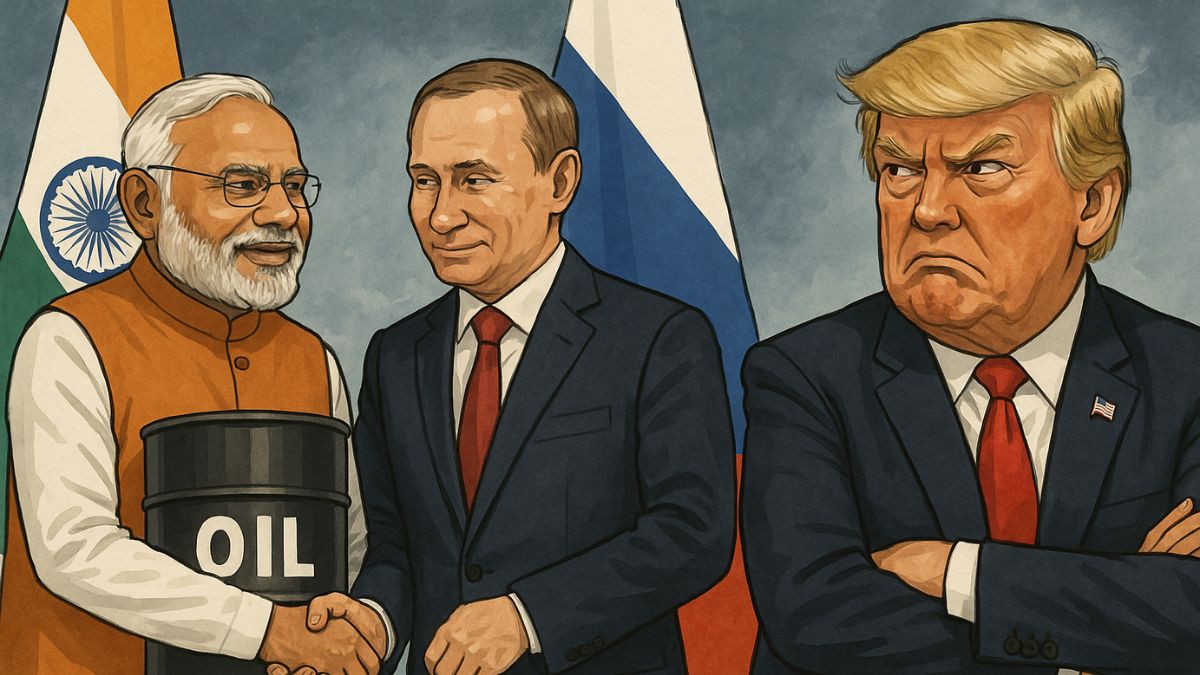Seems like there is no stopping the oil trade between India and Russia, not even US President Donald Trump’s high tariffs. Citing New Delhi’s oil purchase from Moscow, Trump has imposed a total of 50% tariff on Indian goods landing in the US. He claims that Russia uses money to fund its war in Ukraine, and since he wants to end the long-going war, Trump is resorting to levy heavy tariffs on buyers like India and China.
Just a few days back, US Secretary of State Marco Rubio explained why the United States has spared Russia’s biggest oil buyer China from any secondary sanctions, when India is facing a tariff as high as 50%. He claimed that the majority of Russian oil that Beijing is purchasing is being refined and then sold in the global marketplace.
Even as tensions persist, Russia has assured India that crude oil shipments will remain unaffected, reinforcing the energy partnership that has helped New Delhi secure discounted fuel amid volatile global markets.
India-Russia oil trade: What is the special mechanism?
Officials at the Russian embassy in New Delhi said Wednesday (August 20) that supplies would continue “at the same level” as before, under what they described as a “very special mechanism” that shields trade flows from geopolitical shocks. “Despite the political situation, we can predict the same level of oil import by India,” said Roman Babushkin, chargé d’affaires at the Russian mission.
“Russia is a major oil producer and India’s demand is growing every year. This is a perfect case of mutual accommodation.”
The assurance comes against the backdrop of fresh criticism from Washington. US Treasury Secretary Scott Bessent this week accused India of “profiteering” from Russian crude, arguing that New Delhi is reselling shipments at a premium. He described the practice as “arbitrage” during a CNBC interview.
Tensions on oil uncovering energy economics?
Russia accounts for nearly 40% of India’s crude imports, up from just 2.5% before the Ukraine conflict. The sharp shift followed Moscow’s decision in early 2022 to offer deep discounts after Western buyers pulled back. Those volumes made Russia India’s top oil supplier, overtaking West Asian exporters.
Globally, Russian oil makes up around 7% of daily consumption, with India and China now its biggest customers. According to Russian officials, Moscow typically provides Indian refiners with discounts of around 5%, helping cushion India’s import bill at a time when Brent crude prices remain elevated.
Evgeniy Griva, Russia’s deputy trade representative to India, hinted at the durability of this trade arrangement. “There is some mechanism on how to supply crude oil. Now we can’t discuss it… but there is a very special mechanism,” he said.
Indian refiners already refueling Russian oil?
In a major development, it has emerged that leading state-run refiners Indian Oil and Bharat Petroleum (BPCL), have bought Russian oil for September and October delivery, resuming purchases after discounts widened, news agency Reuters reported citing two company officials.
IOC and BPCL had in late July suspended purchases due to narrower discounts and after India was criticised by Washington for its purchases of Russian oil.
Acting on similar lines, Chinese refineries have also seemed to have placed fresh orders for Russian crude oil that will be shipped from ports that typically supply India. At least 15 cargoes of Russian oil have been secured by Chinese refineries for October and November delivery.
India-Russia trade and nuclear cooperation also on the cards?
Babushkin added that if Indian goods face hurdles in the US market, Russia could step in to absorb more of New Delhi’s exports. “If Indian products are encountering difficulties in entering the American market, they will find space in the Russian market,” he stated. Beyond hydrocarbons, energy cooperation is expanding into nuclear technology.
New Delhi and Moscow are in advanced talks on small modular reactors (SMRs), which are seen as critical to New Delhi’s ambitions of enhancing nuclear power capacity, reducing carbon emissions, and strengthening long-term energy security.
